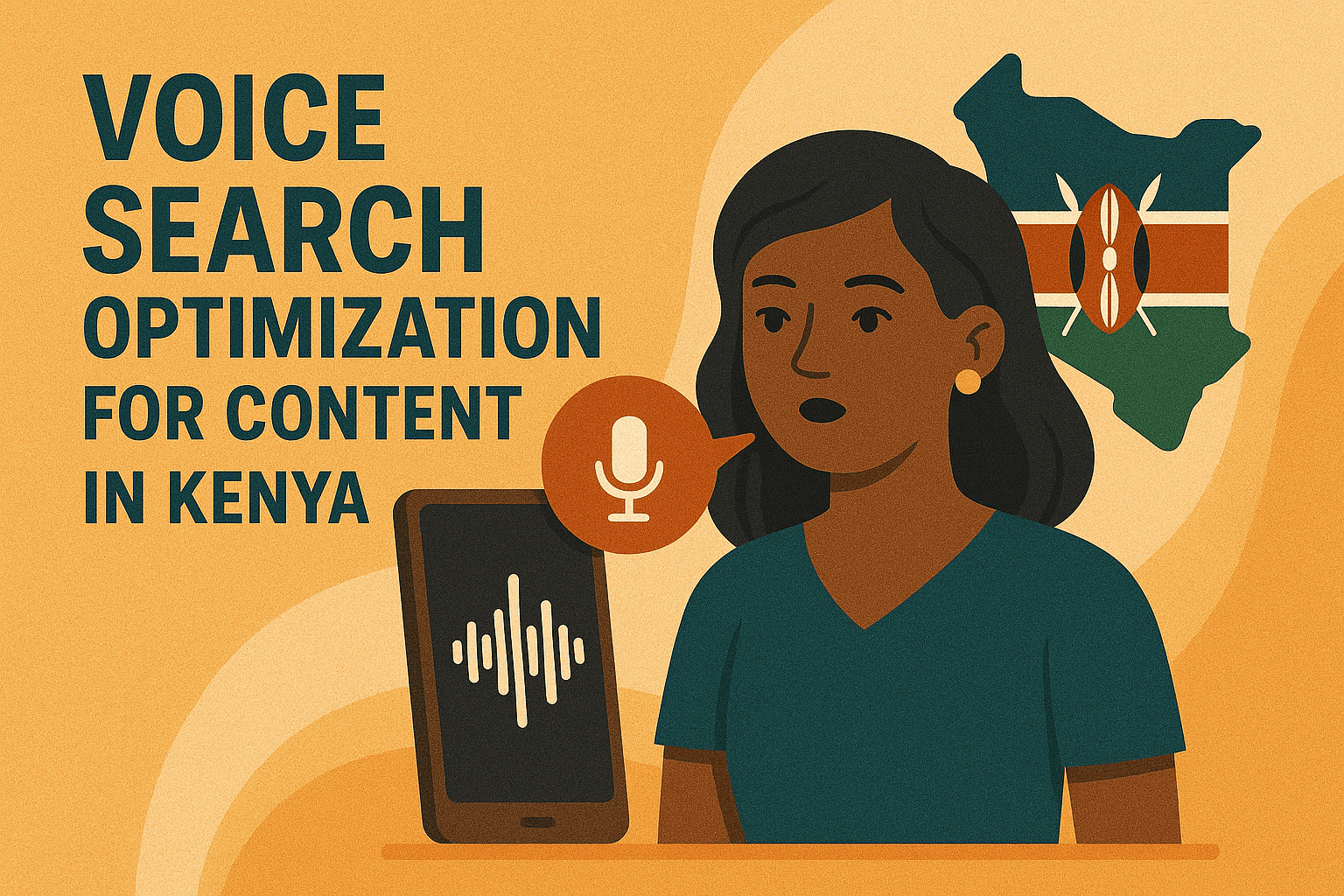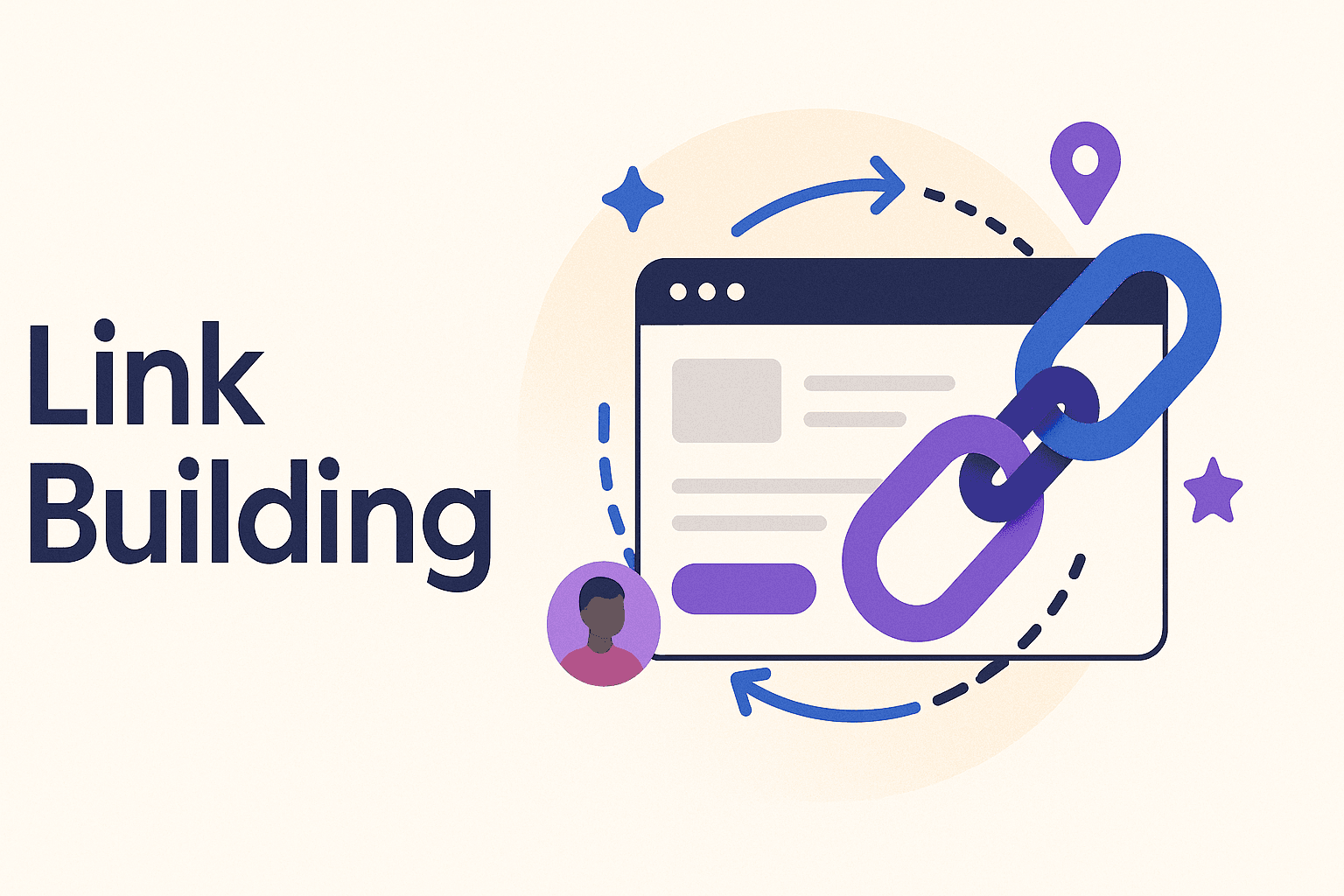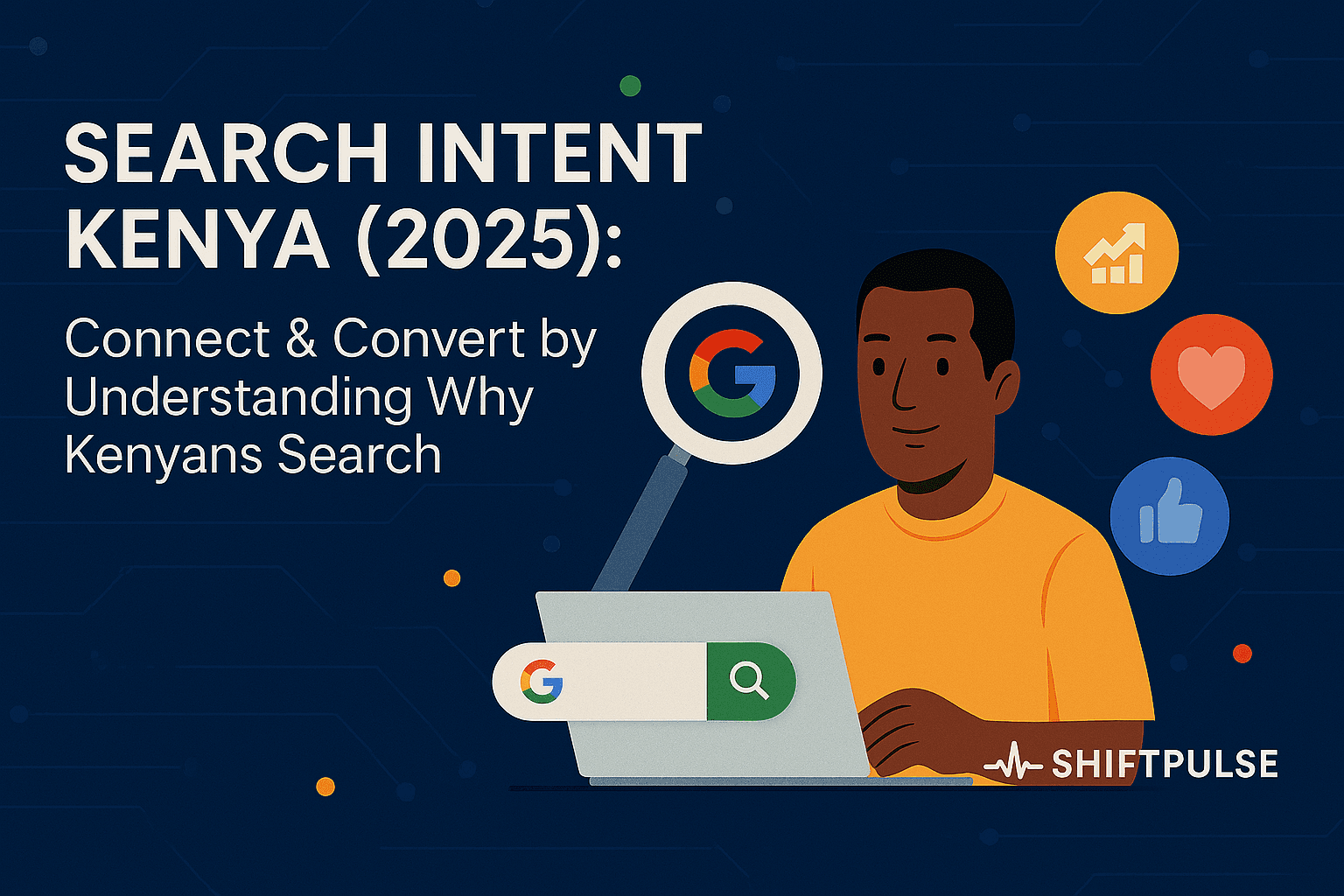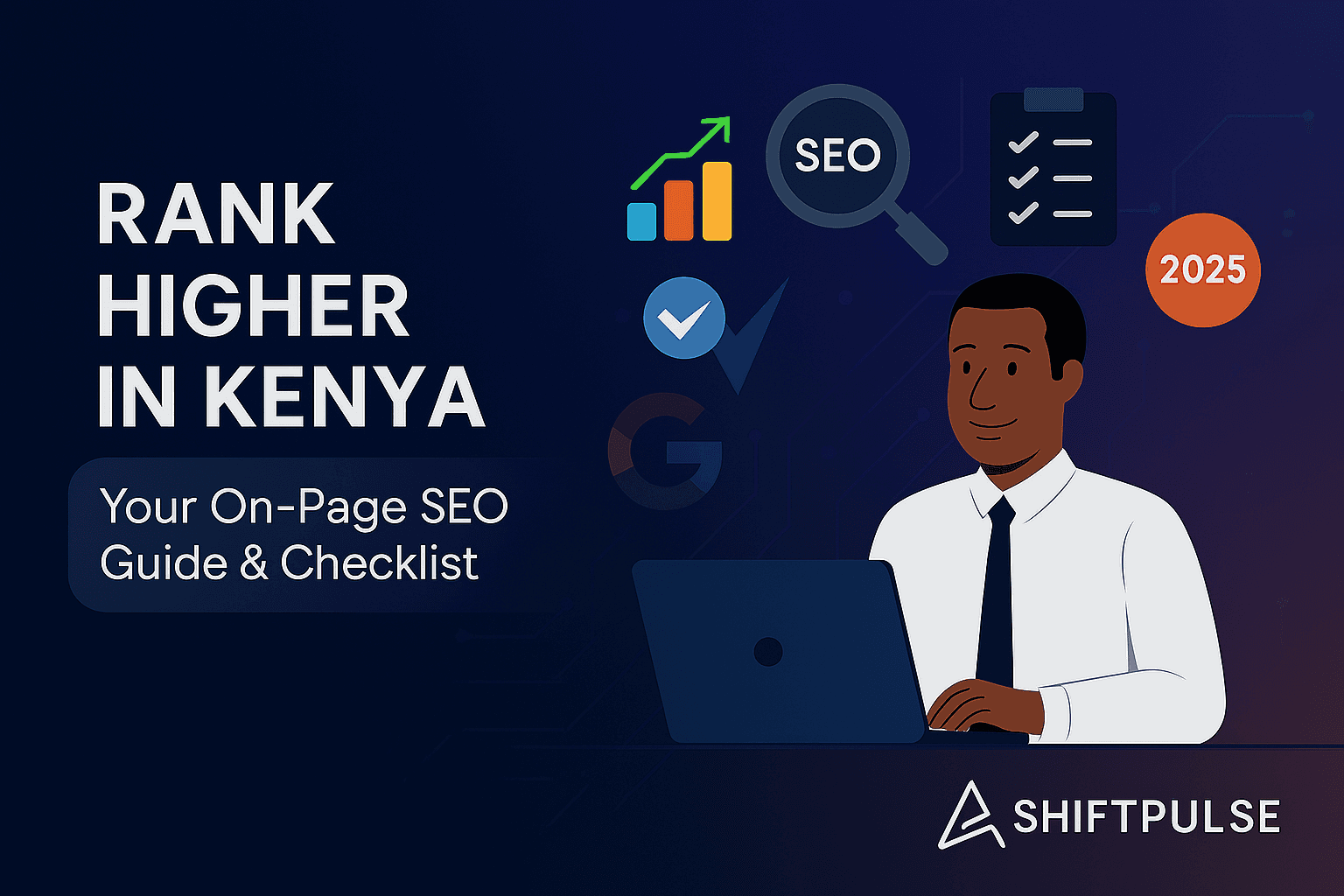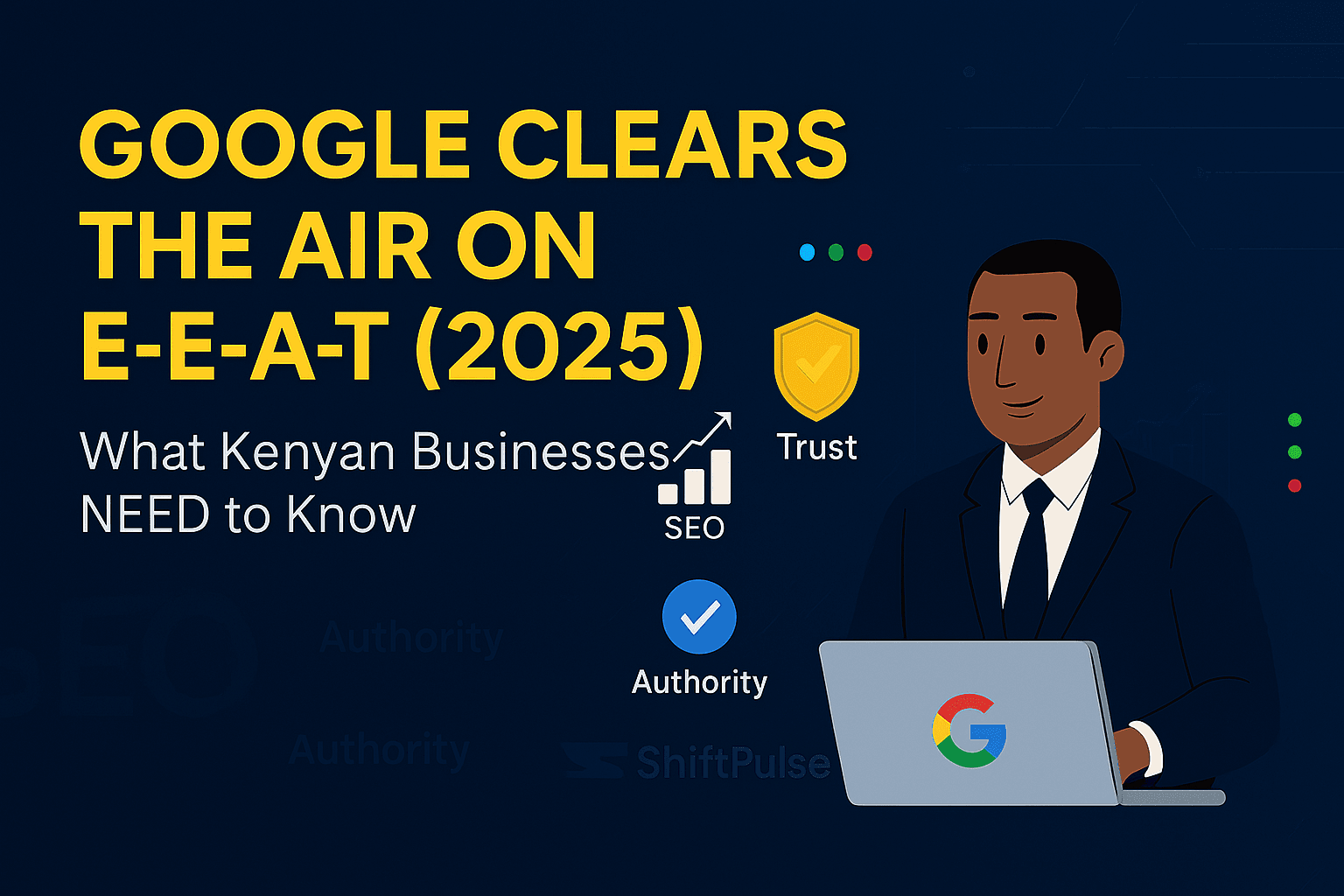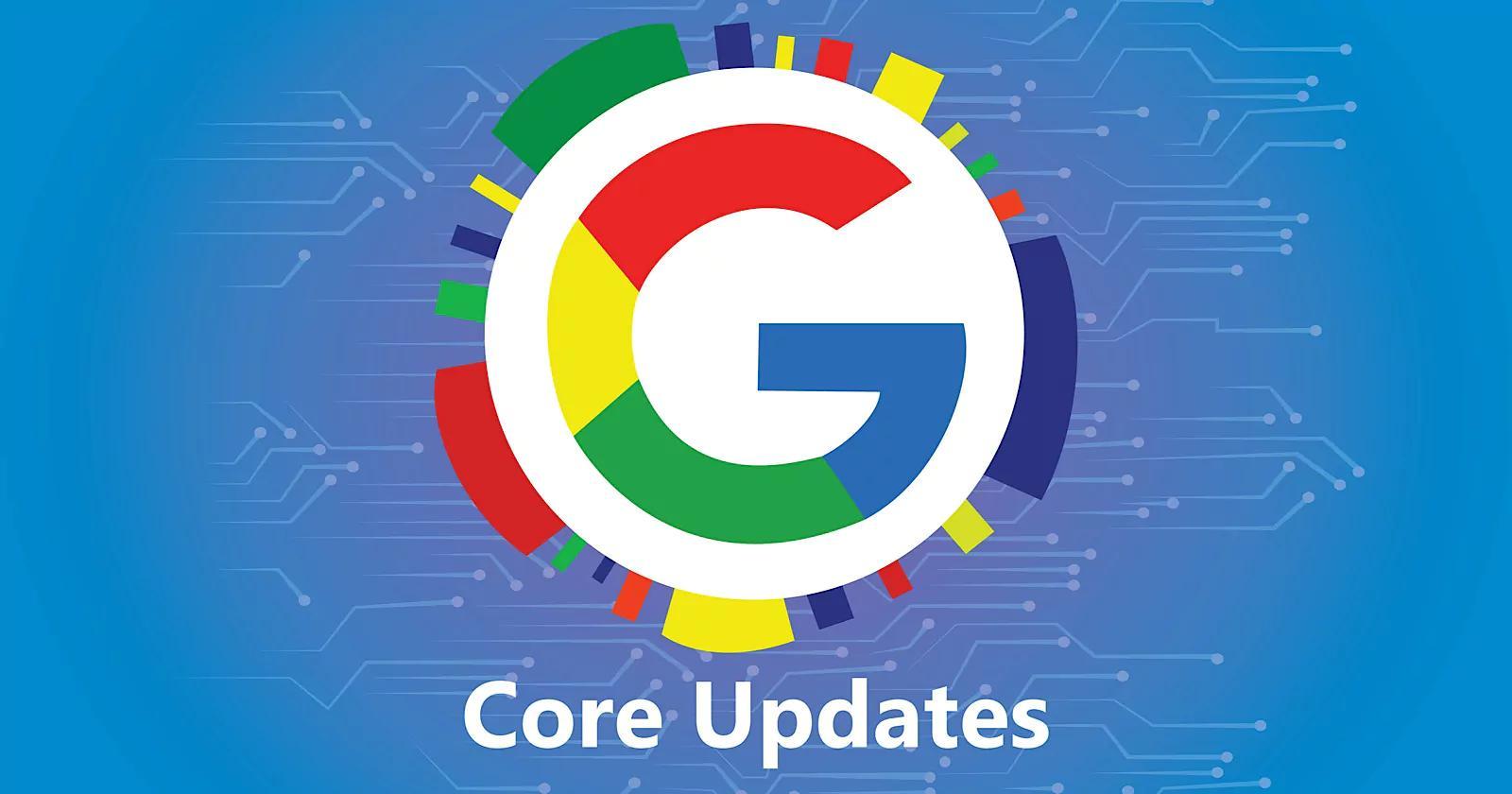
Ken Kariuki
Shiftpulse Marketers
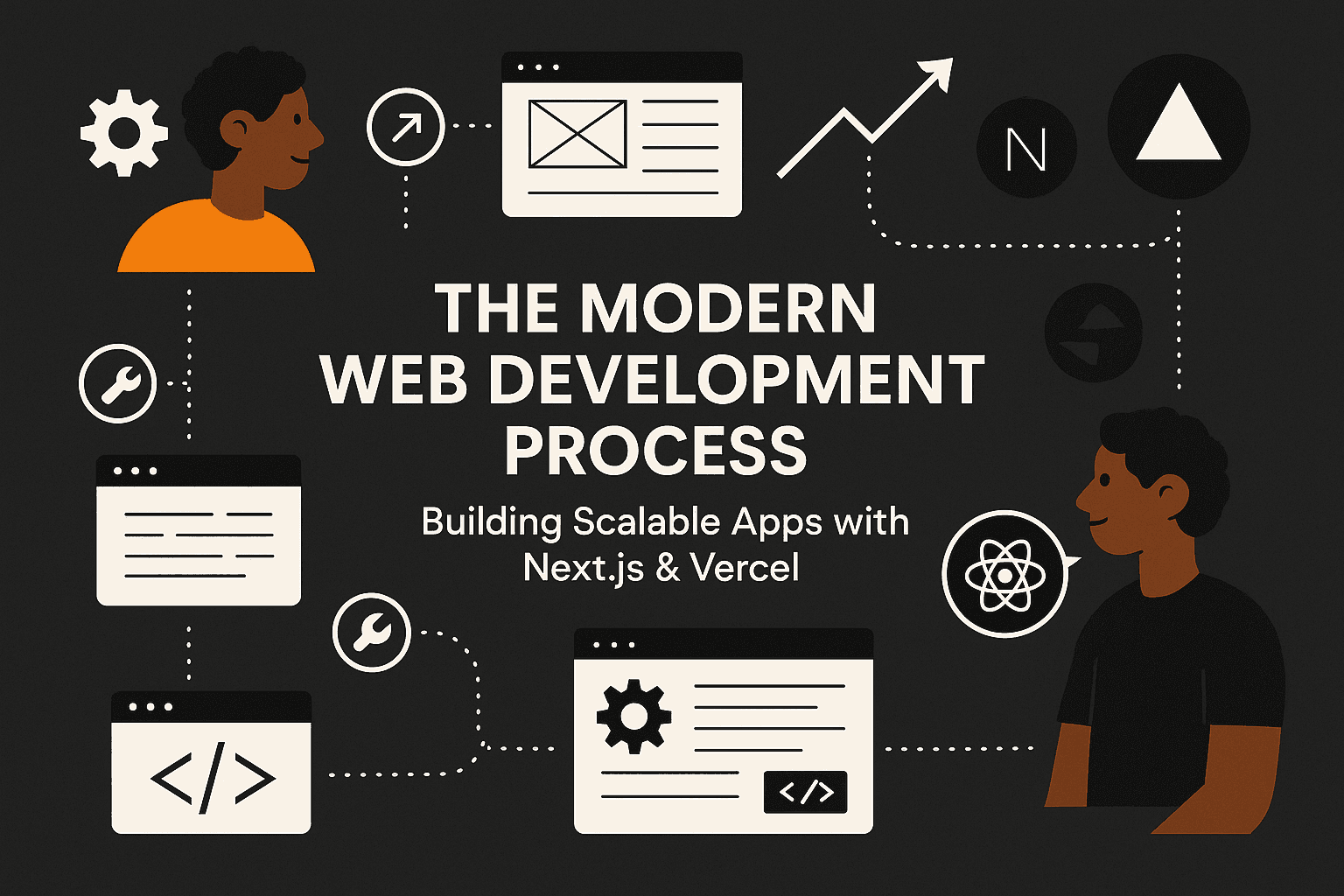
TL;DR: Kenya’s digital economy is booming, driven by high internet penetration, mobile usage, and government support. Businesses must invest in modern web solutions for scalability and competitiveness, as traditional development methods may no longer meet evolving demands. The shift towards advanced technologies is essential for sustainable growth.
The Modern Web Development Process: Building Scalable and Performant Custom Web Applications in Kenya with Next.js & Vercel – A ShiftPulse Guide
Revolutionizing Web Development in Kenya with Next.js & Vercel
The Evolving Digital Landscape in Kenya
Kenya's digital economy, widely celebrated as the "Silicon Savannah," is experiencing remarkable and sustained growth. This digital transformation, as highlighted in numerous industry analyses, underscores the critical importance for businesses to establish and maintain a strong, effective online presence.
Key drivers include increasing internet penetration, widespread mobile usage (a defining characteristic of the Kenyan market), a youthful, tech-savvy population, and generally supportive government initiatives aimed at fostering a digital-first economy. Consequently, the demand for custom web application Kenya solutions is surging as businesses increasingly seek digital tools tailored to their unique operational needs and sophisticated customer engagement strategies.
The rapid pace of this digital evolution in Kenya necessitates a move beyond traditional web development paradigms. Businesses aiming for true scalability, robust performance, and a competitive edge—both locally and in the global marketplace—require advanced web solutions. As ShiftPulse has observed, older development approaches may no longer suffice to meet these increasingly sophisticated demands, signaling a clear shift towards modern, efficient technology stacks capable of delivering high-quality digital experiences.
Introducing Next.js and Vercel as Game-Changers for Kenyan Businesses
At the forefront of this technological shift are Next.js and Vercel, a powerful combination transforming the web development process Kenya and globally. Next.js, an open-source React framework meticulously engineered by Vercel, is designed to empower developers to build high-quality, high-performance web applications. It provides a rich set of features that simplify the development of complex applications, focusing on advanced rendering strategies like server-side rendering (SSR) and static site generation (SSG), alongside an optimized developer experience.
Vercel, the company behind Next.js, offers a cloud platform ingeniously optimized for deploying and scaling Next.js applications, though it adeptly supports other frameworks as well. It is renowned for its seamless deployment workflows, global content delivery network (CDN), and serverless capabilities. Together, Next.js and Vercel provide a cohesive and highly efficient stack for building and deploying modern, scalable web applications.
This synergy is particularly noteworthy because Vercel, as the creator of Next.js, ensures its platform is the native and ideal environment for Next.js applications, offering features like zero-configuration deployments and numerous performance enhancements. This tight integration, a key benefit highlighted by Vercel itself, allows development teams at agencies like ShiftPulse to concentrate on creating innovative features rather than grappling with complex infrastructure configurations, thereby accelerating the delivery of custom web application Kenya projects.
Why This Matters for Kenyan Businesses and Developers
The adoption of a modern web development process Kenya centered around Next.js and Vercel holds significant advantages. In an increasingly competitive digital marketplace, the ability to deliver websites and applications that are fast, reliable, and highly visible on search engines is paramount for success.
For Kenyan Businesses, this translates into:
- Enhanced User Experience: Faster loading times and smoother interactions lead to higher user satisfaction and engagement – critical in a mobile-first market like Kenya.
- Improved SEO Performance: Next.js's architecture is inherently SEO-friendly, leading to better search engine rankings and increased organic traffic. ShiftPulse leverages this for its SEO services.
- Greater Scalability: Applications can effortlessly scale to handle growing user bases and traffic spikes, crucial for businesses with ambitious growth plans in the Kenyan and East African markets.
- Faster Time-to-Market: Streamlined development and deployment processes mean businesses can launch new products and features more quickly.
- Potentially Lower Operational Costs: Efficient resource utilization and serverless architecture can lead to reduced infrastructure expenses over time.
For Kenyan developers, particularly those in the React developer Kenya community, embracing Next.js and Vercel means:
- Skill Enhancement: Acquiring expertise in a leading-edge technology stack that is in high demand globally.
- Increased Productivity: A superior developer experience with features like Fast Refresh and simplified routing.
- Building Robust Applications: The ability to create full-stack applications with a single, cohesive framework.
- Access to a Thriving Ecosystem: A large and active community provides ample resources, libraries, and support.
This modern approach empowers Kenyan entities to not only meet the current demands of the digital age but also to build future-proof applications ready for tomorrow's challenges. At ShiftPulse, we believe this stack is key to delivering exceptional website design and development outcomes.
Understanding Next.js: The Foundation for Scalable Web Applications
What is Next.js?
Next.js is an open-source framework built on top of React, the popular JavaScript library for building user interfaces. Developed and maintained by Vercel, Next.js is engineered to provide developers with the tools necessary to create fast, optimized, and scalable full-stack web applications. It stands out by offering a comprehensive suite of features that address common challenges in web development, particularly concerning performance, search engine optimization (SEO), and developer workflow efficiency. Its design philosophy expertly blends the benefits of server-side rendering with the interactivity of client-side applications, making it a versatile choice for a wide range of projects, from dynamic e-commerce sites to content-heavy portals.
Core Features and Benefits of Next.js for the Kenyan Context
Next.js is packed with features designed to enhance both the developer and end-user experience:
- Flexible Rendering Strategies:
- Server-Side Rendering (SSR): Pages are generated on the server for each user request. This is highly beneficial for SEO (search engines get complete content) and perceived performance for dynamic, user-specific data.
- Static Site Generation (SSG): Pre-renders pages into static HTML files at build time. These files are served quickly from a CDN, ideal for content that doesn't change frequently (blogs, marketing pages), offering incredibly fast load times – perfect for Kenya's diverse internet conditions.
- Incremental Static Regeneration (ISR): A hybrid approach combining SSG speed with dynamic updates. Static pages are served quickly, then Next.js regenerates the page in the background with fresh data, ensuring up-to-date information without full site rebuilds.
- Image Optimization (next/image): Provides automatic image optimization: resizing, modern format conversion (like WebP), and lazy loading. This significantly improves page load times and Core Web Vitals, crucial for SEO and user experience on mobile networks prevalent in Kenya.
- API Routes: Allows developers to easily create backend API endpoints as serverless functions within their project. This can simplify development and reduce infrastructure complexity for many applications, such as those needing to handle form submissions or database interactions, potentially lowering costs for Kenyan SMEs.
- File-System Routing: Intuitive routing based on file/folder structure within the pages or app directory, streamlining navigation definition.
- Built-in CSS and Sass Support: Out-of-the-box support for various styling methods.
- Enhanced Developer Experience (DX): Features like Fast Refresh (instant feedback on code changes without losing state), robust TypeScript support, and a rich ecosystem boost productivity for any React developer Kenya.
- SEO Friendliness: Pre-rendering ensures content is easily crawlable, vital for achieving better search rankings.
- Scalability: Modular architecture and efficient rendering make Next.js suitable for projects of all sizes.
The hybrid rendering capabilities of Next.js are particularly strategic for Kenyan businesses. Given varying internet speeds and a predominantly mobile user base, SSG and ISR deliver fast initial load times. SSR ensures dynamic content remains SEO-friendly, vital for discoverability. This flexibility makes Next.js development Kenya a prudent choice.
The strong emphasis on DX in Next.js directly enhances the productivity of Kenyan developers. In a market where skilled developers are increasingly sought after and rapid development cycles are often necessary, tools that boost productivity enable faster delivery of valuable custom web application Kenya solutions.
Why Next.js is Ideal for Next.js development Kenya
- Performance in Varied Conditions: Addresses the need for fast websites across Kenya's diverse internet speeds.
- SEO Crucial for Market Visibility: Strong SEO capabilities for businesses to be discovered.
- Growing React Developer Base: An existing and expanding talent pool in Kenya can leverage Next.js.
- Alignment with Modern Trends: Meets demands for sophisticated custom web applications.
Leveraging Vercel: Seamless Deployment and Global Scale with a Kenyan Focus
What is Vercel?
Vercel is a cloud platform engineered by the creators of Next.js, designed to simplify the deployment, hosting, and scaling of web applications with a strong emphasis on performance and developer experience. Vercel champions a "zero-configuration" deployment philosophy, enabling developers to move from code to global deployment with remarkable speed. While highly optimized for Next.js, Vercel Kenya users can also deploy a wide array of other frontend frameworks.
Key Platform Features and Benefits for Kenyan Deployments
- Zero-Configuration Deployment: Integrates seamlessly with Git providers (GitHub, GitLab, Bitbucket). Pushing code automatically triggers builds and deployments, eliminating manual server setup. This allows Kenyan teams to focus on development, not complex infrastructure.
- Global CDN (Edge Network): Applications are automatically distributed across Vercel's global CDN. Content is served from the edge location closest to the user, significantly reducing latency. This ensures fast load times for Kenyan users accessing local sites, and for international audiences accessing Kenyan businesses.
- Serverless Functions: Native support for deploying backend logic without managing traditional servers. These functions scale automatically, offering cost savings as resources are only consumed when executed.
- Preview Deployments: A standout Vercel feature. Every Git push or pull request generates a unique, live, shareable URL. This allows development teams, designers, and clients in Kenya to review and test changes in a production-like environment before merging, drastically improving collaboration.
- Built-in CI/CD: Automates the build, test, and deployment pipeline, minimizing errors and speeding up releases.
- Automatic Scaling: Infrastructure dynamically allocates resources to handle traffic increases, ensuring high availability.
- Analytics and Monitoring (Vercel Analytics & Speed Insights): Provides valuable data on traffic, user behavior, and performance metrics like Core Web Vitals.
- Security Features: Automatic SSL/TLS certificates, DDoS mitigation, and secure environment variable management.
Vercel's "zero-configuration" model democratizes access to enterprise-grade deployment infrastructure for Kenyan developers and startups, fostering innovation in the custom web application Kenya sector. The combination of its Global CDN and Serverless Functions creates a resilient, scalable architecture well-suited for the unpredictable traffic patterns Kenyan online businesses might face. Preview Deployments enhance collaboration within the web development process Kenya, leading to faster iterations and client satisfaction.
The Vercel Advantage for Businesses Targeting or Operating in Kenya
- Global Reach with Local Speed: Ensures Kenyan websites serve international audiences quickly, while providing fast access for local users.
- Enhanced Developer Productivity: Frees up Kenyan tech teams to focus on innovation rather than DevOps.
- Cost-Effective Scaling: Serverless architecture allows startups and SMEs in Kenya to manage infrastructure costs effectively.
How Vercel Complements Next.js
Vercel is intrinsically designed as the optimal environment for Next.js applications. This native support ensures peak performance (Vercel's infrastructure understands Next.js features like ISR, SSR, Image Optimization), seamless integration of new Next.js features, and simplified workflows. Developers working on Next.js development Kenya projects can be confident their applications are deployed on a platform built to unlock Next.js's full potential.
Our Agile Web Development Process: From Concept to Launch with Next.js & Vercel at ShiftPulse
At ShiftPulse, our web development process Kenya is deeply rooted in agile principles, leveraging the combined strengths of Next.js and Vercel to deliver exceptional custom web applications efficiently. Agile development prioritizes continuous delivery, collaboration, and the ability to respond effectively to change, moving away from rigid, linear models.
Our Step-by-Step Agile Lifecycle:
Phase 1: Discovery & Planning (Agile: Concept & Inception)
- Understanding Client Goals & User Needs: We conduct thorough workshops to explore your business objectives for the custom web application Kenya. A key part is identifying your target audience in Kenya, their needs, behaviors, and user intent.
- Defining Scope & Requirements: We collaborate to define project scope, establish clear objectives, and create an initial product backlog (prioritized features).
- Keyword Strategy & SEO Planning: Early SEO consideration includes initial keyword research relevant to your project and the Kenyan market.
- ShiftPulse Insight: Strategic planning at this stage includes identifying how Next.js's SSR or SSG can meet performance and SEO goals for your Kenyan audience.
Phase 2: Design & Prototyping (Agile: Iteration - Design Focus)
- Information Architecture & User Flows: Mapping application structure and user journeys for intuitive navigation.
- Wireframing & UI/UX Design: Creating low-fidelity blueprints, then visually appealing, user-friendly interfaces with a strong emphasis on mobile-first design for Kenya's market and culturally relevant aesthetics.
- Interactive Prototyping (e.g., Figma): Allowing clients to experience the application's look and feel early on.
- ShiftPulse Insight: Designs are conceptualized with Next.js's component-based architecture in mind, facilitating a smoother transition to development by our React developer Kenya team members.
Phase 3: Development Sprints (Agile: Iteration - Development Focus)
- Sprint Planning: Selecting features from the product backlog for each sprint (typically 1-4 weeks).
- Frontend Development with Next.js: Building UI components, implementing routing, managing state, and leveraging Next.js features like next/image and next/font.
- Backend/API Development: Using Next.js API Routes or Vercel Serverless Functions for backend logic.
- Database Integration: Connecting to databases like Vercel Postgres or others.
- Continuous Integration with Vercel: Every Git push automatically triggers a build on Vercel.
- ShiftPulse Insight: Our developers leverage Next.js for efficient full-stack development, with Vercel providing seamless CI and serverless infrastructure.
Phase 4: Testing & QA (Agile: Iteration - Testing Focus)
- Comprehensive Testing: Unit, integration, and end-to-end tests.
- Performance Testing: Rigorous testing for load times and responsiveness, crucial for mobile performance in Kenya.
- Cross-Browser & Device Testing: Ensuring consistency.
- User Acceptance Testing (UAT): Clients review Vercel Preview Deployments for validation.
- Security Testing: Identifying and mitigating potential vulnerabilities.
- ShiftPulse Insight: Vercel's Preview Deployments are invaluable for UAT, enabling rapid, iterative feedback directly on working versions.
Phase 5: Deployment (Agile: Release)
- Production Build & Deployment to Vercel: Merging changes to the main Git branch triggers automatic production deployment on Vercel Kenya (via its global infrastructure).
- Domain Configuration & SSL: Vercel handles custom domains and automatic SSL.
- Environment Variable Management: Securely managing sensitive information.
- Monitoring Initial Rollout: Using Vercel Analytics and other tools.
- ShiftPulse Insight: Vercel abstracts away deployment complexities, making production launches straightforward and reliable.
Phase 6: Post-Launch: Maintenance, Monitoring & Iteration (Agile: Maintenance & Feedback Loop)
- Ongoing Monitoring: Using Vercel Analytics & Speed Insights for performance, user behavior, and SEO metrics.
- Maintenance & Support: Bug fixes, security patching, performance optimizations. ShiftPulse offers tailored support and maintenance packages. * Iterative Enhancements: User feedback and analytics inform future sprints. Next.js's ISR can be useful for updating content-heavy static sites.
- ShiftPulse Insight: Vercel’s observability tools and Next.js’s flexible rendering facilitate a continuous improvement cycle for your custom web application Kenya.
This agile, tool-supported process, as implemented by ShiftPulse, ensures we build robust, scalable, maintainable applications perfectly aligned with your evolving business needs in the Kenyan market. The consistent emphasis on modern tooling ensures alignment with global best practices, making projects delivered by Kenyan developers competitive and future-proof.
The Kenyan Tech Landscape: Opportunities for Next.js & Vercel Adoption
Kenya's "Silicon Savannah" is a testament to its vibrant tech ecosystem, driven by increasing internet/mobile penetration, a youthful population, and supportive government policies (despite some evolving legislative discussions like the ICT Practitioners Bill, which is now focusing more on codes of practice). This environment is ripe for modern web technologies.
Demand for Modern Web Development Skills in Kenya
There's a significant and growing demand for skilled web developers, especially those proficient in modern JavaScript frameworks. The demand for React developer Kenya talent is rising, as shown by job market trends and industry reports like the "State of African Talent 2024." Since Next.js is a leading React framework, there's an expanding talent pool ready to leverage Next.js development Kenya for advanced applications.
Trends in custom web application Kenya Development
- Efficiency and Automation: A shift towards tools enhancing efficiency.
- Cloud-Native and Security Focus: Emphasis on DevSecOps and scalable cloud-native apps.
- User Experience and Performance: Mobile-first design is paramount, with a focus on performance and localized UX.
- E-commerce Growth: Continued expansion driving the need for robust online store solutions.
Next.js and Vercel are well-positioned to address these trends.
Showcasing Kenyan Adoption of Next.js & Vercel
While large enterprise case studies are emerging, adoption is evident:
- E-commerce: Storeleads.app (May 2025) notes several Kenyan e-commerce stores (e.g., urbantreks.co.ke, Masoko.com, Liquor Stream) built with Next.js, often using Custom Cart.
- Developer Portfolios & SMEs: Kenyan developers like Maxwel Khadambi and startups like Chisend showcase projects deployed on Vercel for diverse clients. Freelancer platforms list numerous Next.js projects by Nairobi developers. This grassroots adoption by individual developers and agile entities often precursors wider enterprise uptake.
- Government & Public Sector: While direct government adoption of this specific stack isn't yet widely publicized, the push for digital transformation, e-governance, and enhanced cybersecurity aligns well with the capabilities of Next.js and Vercel, especially if data localization requirements are met through enterprise offerings.
SEO Optimization for Next.js Applications in the Kenyan Market with ShiftPulse
Next.js and Vercel provide a powerful technical foundation for excellent SEO results, crucial in Kenya's growing digital economy. ShiftPulse enhances this with strategic SEO.
Next.js: Inherently SEO-Friendly Architecture
- SSR and SSG for Crawlability: Next.js pre-renders HTML, making content readily available to search engine crawlers, dramatically improving crawlability and indexability.
- Performance and Core Web Vitals: Built-in optimizations (code splitting, image/font optimization via next/image & next/font) contribute to faster load times and better Core Web Vital scores – key Google ranking factors.
- Clean and Semantic URLs: File-system routing leads to clean, descriptive URLs.
- Effective Metadata Management: Robust tools (next/head or Metadata API) allow precise optimization of titles, meta descriptions, and other SEO tags per page.
Practical SEO Strategies for Next.js/Vercel Projects Targeting Kenya (A ShiftPulse Approach):
Keyword Research for the Kenyan Market:
- Identify core and long-tail keywords (e.g., "affordable Next.js web design Nairobi," "hire React developer Kenya with M-Pesa experience").
- Utilize SEO tools filtered for Kenya.
- Consider Swahili/Sheng variations where appropriate (e.g., "bei ya website" - price of website).
- Analyze user intent for the Kenyan audience.
On-Page SEO:
- Optimize meta tags, header tags (H1-H6), and create high-quality, localized content.
- Implement strategic internal linking using Next.js Link component.
- Use next/image for optimized images with descriptive alt text.
Technical SEO with Next.js & Vercel:
- Generate and submit sitemaps (e.g., using next-sitemap).
- Configure robots.txt.
- Implement JSON-LD structured data for rich snippets.
- Ensure mobile-friendliness (Next.js is responsive by design).
- Leverage Vercel's automatic SSL/HTTPS.
Local SEO for Kenyan Businesses:
- Optimize Google Business Profile.
- Build local citations in Kenyan directories.
- Create location-specific content (e.g., "web design services Westlands, Nairobi").
Leveraging Vercel's Features for SEO:
Vercel's global Edge Network, automatic image optimization, Vercel Analytics & Speed Insights, and automatic SSL all contribute directly to better SEO performance by enhancing site speed, providing user metrics, and ensuring security.
ShiftPulse ensures that your Next.js development Kenya project incorporates ongoing SEO monitoring and optimization tailored to Kenyan search behavior, leveraging tools like Vercel Analytics and Google Search Console. For more on our approach, see our SEO services.
Navigating Legal and Compliance Waters for Web Applications in Kenya with ShiftPulse
Developing custom web application Kenya projects with Next.js and Vercel requires careful attention to local legal and compliance, an area where ShiftPulse provides guidance.
Key Legal Considerations:
- Data Protection Act, 2019 (DPA) & Regulations:
- Applicability: Applies to controllers/processors in Kenya, or those outside processing data of individuals in Kenya. This directly impacts apps on global platforms like Vercel Kenya.
- Principles: Lawfulness, fairness, transparency; purpose limitation; data minimization; accuracy; storage limitation; integrity & confidentiality1 (security); accountability.
- User Consent: Must be express, unequivocal, free, specific, and informed (opt-in, no pre-checked boxes). Comprehensive privacy policies are essential.
- Data Subject Rights: Mechanisms for access, rectification, erasure, objection, restriction, and portability.
- Data Security: Implement appropriate technical/organizational measures.
- Data Protection by Design and Default: Integrate data protection from the outset.
- DPIAs: Mandatory for high-risk processing.
- Registration of Data Controllers/Processors: Required for many sectors (e-commerce, finance, etc.) based on turnover/employee thresholds or sector type.
- Cross-Border Data Transfers & Localization: Transferring personal data outside Kenya is restricted unless specific conditions (safeguards, adequacy decision, consent) are met. Vercel's global infrastructure necessitates careful assessment of these rules. Kenya's Cloud Policy also encourages localization for sensitive data.
- Data Breach Notification: Notify ODPC (and potentially data subjects) within 72 hours of significant breaches.
- ShiftPulse helps integrate DPA compliance into the web development process Kenya. For more details, see our guide on Kenyan digital marketing regulations.
- Cybersecurity: The Computer Misuse and Cybercrimes Act, 2018 (CMCA):
- Criminalizes unauthorized access, interference, data espionage, etc. Developers must implement secure coding practices. KE-CIRT/CC provides guidance.
- E-commerce Regulations (Consumer Protection Act, 2012; KICA, 1998):
- Ensure accurate product info, fair terms, quality service, secure payments (complying with CBK regulations for PSPs), and dispute resolution.
- Intellectual Property (IP) Protection (Copyright Act, 2001; Industrial Property Act, 2001):
- Software (source/object code) and website UI/UX can be protected by copyright (KECOBO registration recommended). Unique UI/UX may be registrable as industrial designs (KIPI). Software "as such" is generally not patentable unless part of a novel technical solution.
- ICT Authority Bill 2024 (Evolving):
- Aims to provide a legal framework for the ICT Authority, formulate ICT codes of practice/standards, and potentially influence accreditation/vetting of service providers. Developers should stay informed.
Navigating these laws is crucial. ShiftPulse advises incorporating legal review into your project budget and timeline. We can connect you with legal experts specializing in TMT law in Kenya.
Conclusion: Building Future-Proof Web Applications for Kenya with ShiftPulse
The modern web development process Kenya, powered by Next.js and Vercel, offers a clear path to creating highly scalable, performant, and SEO-friendly custom web applications. These technologies represent a strategic advantage for Kenyan businesses aiming to innovate and compete effectively.
At ShiftPulse, we believe mastering Next.js and Vercel is key for any React developer Kenya and for businesses seeking impactful custom web application Kenya solutions. However, technology alone isn't enough. True success relies on:
Advanced Technology: Leveraging Next.js and Vercel.
Robust Agile Processes: Ensuring effective delivery aligned with Kenyan market needs.
Diligent Legal and Compliance Adherence: Navigating Kenya's DPA, cybersecurity, and e-commerce laws.
The future of web development in Kenya is dynamic. By combining ShiftPulse's expertise in strategy, agile methodologies, modern technology stacks like Next.js and Vercel, and a steadfast commitment to legal and ethical standards, your business can build innovative and resilient web applications that drive growth.
Ready to discuss how a modern web development approach can transform your Kenyan business? Contact ShiftPulse today for an expert consultation. Let's build your digital future, together.
